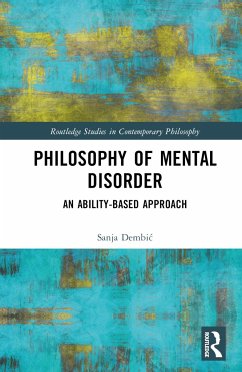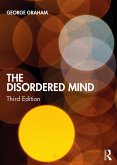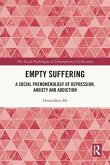This book offers an ability-based view of mental disorders. It develops a detailed analysis of the concept of inability that is relevant in the psychiatric and psychotherapeutic context by drawing on the most recent literature on the concepts of ability, reasons, and harm.
What is it to have a mental disorder? This book contends that an individual has a mental disorder if and only if (1) they are in the relevant sense unable to respond adequately to their available (apparent) reasons in their thinking, feeling, or acting, and (2) they are harmed by the condition underlying or resulting from that inability. The author calls this the "Rehability View." This view can account for what is "mental" about mental disorders: it is the rational relations among an individual's attitudes and actions that are "disordered," and the relevant norms are the norms of reasons. This view is compatible with explanations of mental disorders in terms of biological dysfunctions, without reducing the former to the latter. The aim is not to offer just another conception of mental disorder, but to develop a systematic approach that incorporates insights from the philosophy of psychiatry and adjacent philosophical disciplines.
Philosophy of Mental Disorder will be of interest to scholars and advanced students working in philosophy of psychiatry, philosophy of mind, philosophy of action, ethics, and mental health.
What is it to have a mental disorder? This book contends that an individual has a mental disorder if and only if (1) they are in the relevant sense unable to respond adequately to their available (apparent) reasons in their thinking, feeling, or acting, and (2) they are harmed by the condition underlying or resulting from that inability. The author calls this the "Rehability View." This view can account for what is "mental" about mental disorders: it is the rational relations among an individual's attitudes and actions that are "disordered," and the relevant norms are the norms of reasons. This view is compatible with explanations of mental disorders in terms of biological dysfunctions, without reducing the former to the latter. The aim is not to offer just another conception of mental disorder, but to develop a systematic approach that incorporates insights from the philosophy of psychiatry and adjacent philosophical disciplines.
Philosophy of Mental Disorder will be of interest to scholars and advanced students working in philosophy of psychiatry, philosophy of mind, philosophy of action, ethics, and mental health.








